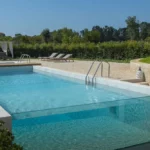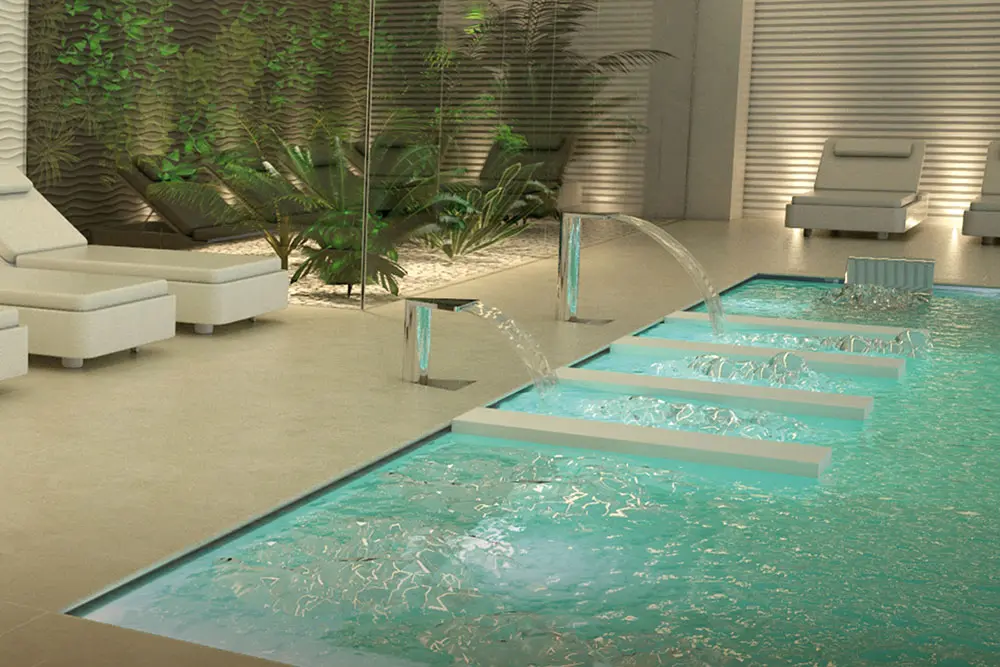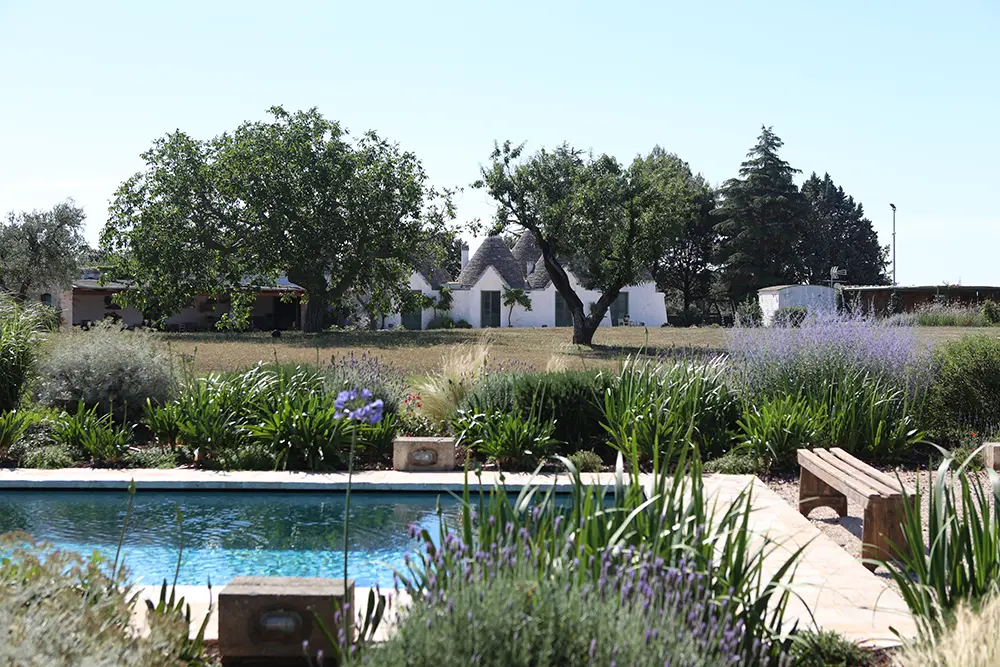
Here are all the colors available for your pool
21 October 2022
Longing for swimming pools: Apulia is the queen of the swimming pool
19 December 2022
The differences between a public pool and a private pool and everything you need to know to ensure safety
In 2006, the revision of the UNI 10637 standard was published, which inspired a specific law for swimming pools.
Based on their destination, the pools are divided into various categories:
- Public swimming pools: the types of public or privately owned swimming pools that are open to the public (municipally owned swimming pools, privately owned swimming pools for public use, public or private water parks);
- Condominium pools: these are the condominium pools;
- Rehabilitation pools: pools for special use located within treatment and rehabilitation facilities;
- Private swimming pools: swimming pools for the exclusive use of a single building unit.
In recent years, Apulia has become one of the most popular holiday destinations for Italians and foreigners. Consequently, the supply of accommodation facilities in the area has significantly increased, aimed at satisfying an ever increasing demand.
According to their use, the pools are different depending on the purpose of the pools: used for bathing or swimming, for relaxation, for thermal uses or competitive purposes:
- For swimmers and swimming training;
- For diving and underwater activities;
- Recreational;
- For children;
- Multifunctional;
- Equipped recreational facilities;
- For rehabilitation uses;
- For healing and spa uses
In this context, it is important to know what to do and to know the relevant legislation. To do this, we contacted the lawyer Marta Ancona (Founder Ancona&Partners), an expert in the sector and the recent author of an interesting article on the subject.
In recent years, private individuals rent their homes to guests and visitors, the so-called holiday homes rented through short contracts, lasting no more than thirty days.
Teknopiscine specializes in the design and construction of swimming pools in Apulia, and is able to build your pool according to the specific needs of a public pool or a private pool.
Do you need a lifeguard in holiday homes?
In fact, it is necessary to ask whether the private individual who intends to rent his villa with swimming pool is required to apply or not the “sanitary regulations of swimming pools” provided for by the Regional Law n. 35 of 15 December 2008 (LR 35/2008), which, among other obligations, requires in the case of “oversized” pools, compliance with specific supervisory obligations such as the presence of a lifeguard.
The requirements relating to management, control and supervision provided for by Regional Law 35/2008 must be fulfilled only in the event that the property is used as an accommodation facility, including non-hotel accommodation.
What are “oversized” pools?
The presence of a swimming pool in an accommodation facility determines the need to deal with a series of provisions that can present greater practical and interpretative complexity, especially if we are faced with a swimming pool larger than 100 square meters and/or with a depth greater than 1,40 m, or the so-called oversized pools.
Are the holiday homes accommodation facilities?
It is therefore necessary to understand whether the holiday homes should be counted among the accommodation facilities or not. According to the definition contained in the Regional Law n. 11 of 11 February 1999 (LR 11/1999) holiday homes are included among the accommodation facilities (non-hotel) if managed “in an entrepreneurial and not occasional form, for renting to tourists”.
Consequently, in general, the rental of a holiday home in the name of a natural person and managed in a non-business form, does not give rise to the owner’s compliance with the obligations established by the Regional Law for accommodation facilities and, in particular, the need to have a lifeguard in the presence of an oversized swimming pool. Otherwise, however, the private individual who manages the villa professionally and in an organized manner is required to be prescribed by the lifeguard (requirement of entrepreneurship which is presumed to exist in the event that the villa is registered in the name of a commercial company).
Our advice
In order to better protect the owner of the property, in any case we consider it advisable to include, when drafting the contract:
- a clause in which the size of the pool pertaining to the property and the need to use special precautions for its use are formally communicated to the tenant;
- obtain a preventive opinion from the Prevention Department of the competent ASL on the need or not to have a lifeguard;
- in the event of commercial agreements with hotels, establish, among other things, the terms and conditions relating to the management of the swimming pool and the division of responsibilities.
Contact us to receive a free consultation, by sending us an email, or by calling our offices at +39 080 480 5343, or by sending a WhatsApp message, and our consultants will be able to identify the solution that best suits your needs.
Article written in collaboration with Marta Ancona
Founder of Ancona&Partners law firm
For further information on these issues: info@anconapartners.com




